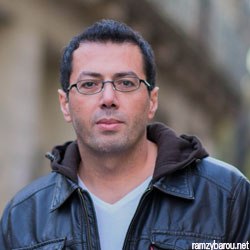If you visit the Mahal website, a pop-up reminder — “Apply online” — keeps appearing. It is as if the repeated beep is a reminder of the state of emergency, if not outright panic, in the Israeli military. Mahal is one of several recruitment agencies that aim to entice mercenaries from all around the world to fight Israel’s dirty wars on all fronts, including Gaza.
As soon as the Israeli war against the Palestinians in Gaza was launched last October, rumors began circulating of a low turn-out among Israeli reservists. This was coupled with an unprecedented political crisis in Israel, where the military was insistent about recruiting ultra-Orthodox Jews which, until recently, has been a taboo topic for Israeli politicians. Even when the draft orders went out for thousands of Haredim in July, only a small fraction of those summoned answered the call, according to Israeli media.
The crisis is yet to be resolved, and most likely will not be resolved, as the far-right Israeli government of Benjamin Netanyahu continues to expand the war fronts. To understand the degree of Israel’s military crisis, compare the much-hyped statements of Israeli officials at the start of the war, when they promised total victory, with the latest statements.
In July, for example, Israeli Defense Minister Yoav Gallant said that “the army needs 10,000 more soldiers immediately.” The use of “10,000” is particularly interesting when we consider an Israeli army revelation that at least 10,000 of its soldiers have been seriously or moderately wounded since the start of the war.
The number is likely to be much higher, based on media leaks and information provided by Israeli hospitals. Moreover, thousands of Israeli soldiers have been declared to be “disabled” due to psychological trauma suffered during the war, according to Israel’s defense ministry. Hence the state of urgency in an army, which according to Israeli Major General Reserve Yitzhak Brik, has become “small and weak, with no surplus of forces.”
So, where does Israel go from here?
Instead of ending its war-turned-genocide in Gaza, Netanyahu has decided to turn to the very people who have been told that they are the most unwanted elements of Israeli society: African refugees and asylum seekers. Haaretz reported on 15 September that Israeli recruiters have been working quietly to enlist as many African asylum seekers as possible in the occupation army. As an enticement, the recruiters are promising permanent residence permits although, according to the newspaper, not a single African soldier has yet received the coveted documentation.
“Defense officials… say the project is conducted in an organized manner, with the guidance of defense establishment legal advisers,” said Haaretz. The paper also confirmed that, “The ethical considerations of recruiting asylum seekers have not been addressed.”
By “ethical considerations”, both Haaretz and the cited defence officials are not referring to the killing of unarmed Palestinian civilians in Gaza at the hands of poor, desperate refugees from Africa, but to the rights of the asylum seekers themselves.
Israel is known to mistreat not only African asylum seekers, but also its own darker-skinned citizens as well. This racism has manifested itself in the clearest ways against African asylum seekers, whose number is estimated to be around 30,000. Thousands of Africans have already been deported from the country, not to be repatriated to their original homes but to other African countries, where human rights violations are widespread.
In 2018, Amnesty International said that the Israeli government is forcefully returning the refugees “to persecution or indefinite detention.”
The rights organization chastised Israel’s “ill-thought-out policies” and “reckless abandonment of responsibility.”
Predictably, Israel’s mistreatment of its asylum seekers and refugees received muted responses from Western governments and rights groups that often react strongly to reports of mass abuse or unlawful deportations of refugees anywhere else in the world. And, as is often the case, failure to hold Israel accountable to international and humanitarian laws emboldens the latter to continue with its “ill-thought-out policies”.
Imagine the cruelty of using desperate refugees, who have no political or historical affiliations with the war in Palestine, to kill other refugees in displacement camps across Gaza, where most of the people are refugees from other parts of Palestine occupied by Israel since 1948. In doing so, Israel has crossed every moral, ethical and legal boundary that governs state and military behavior during times of war. This, however, cannot mean that the international community is incapable of deterring these Israeli practices, through concrete actions and direct sanctions.
Many countries throughout Africa have already raised their voice in solidarity with Gaza and the Palestinian people. The bond between Africa and Palestine should now be strengthened by Israel’s utter disregard, not only for the lives of the Palestinians, but for African lives too.
The African Union should take the lead on this issue, dissuade citizens from joining the Israeli military under any circumstances, and pursue the matter of recruiting African asylum seekers at the highest level of legal institutions. While the moral stance taken by many African countries regarding the Israeli genocide in Gaza deserves the utmost respect, it is also incumbent on African governments to take an equally strong stance so that Israel stops using Africans to kill and be killed in Gaza.
-Ramzy Baroud is a journalist and the Editor of the Palestine Chronicle. He is the author of five books. His latest is ‘These Chains Will Be Broken: Palestinian Stories of Struggle and Defiance in Israeli Prisons’. Baroud is a Non-resident Senior Research Fellow at the Center for Islam and Global Affairs (CIGA) and also at the Afro-Middle East Center (AMEC).











